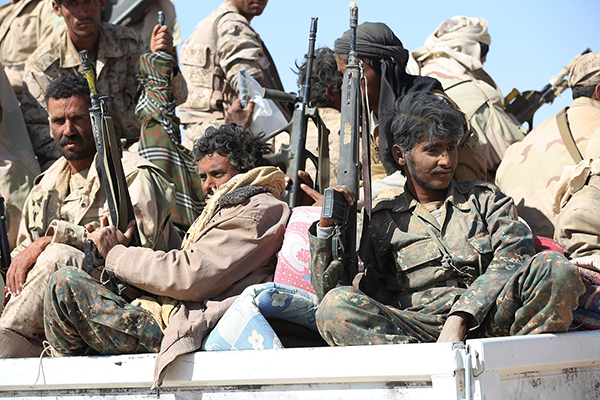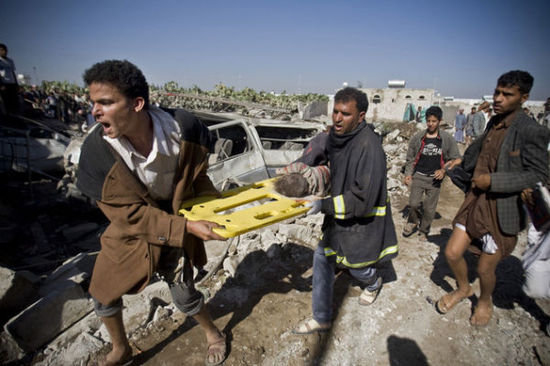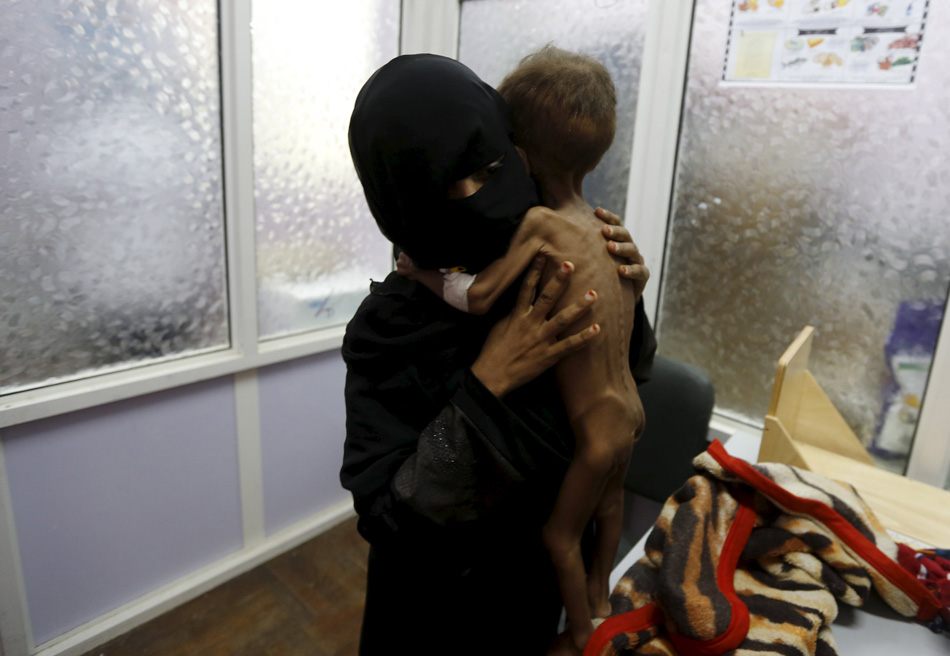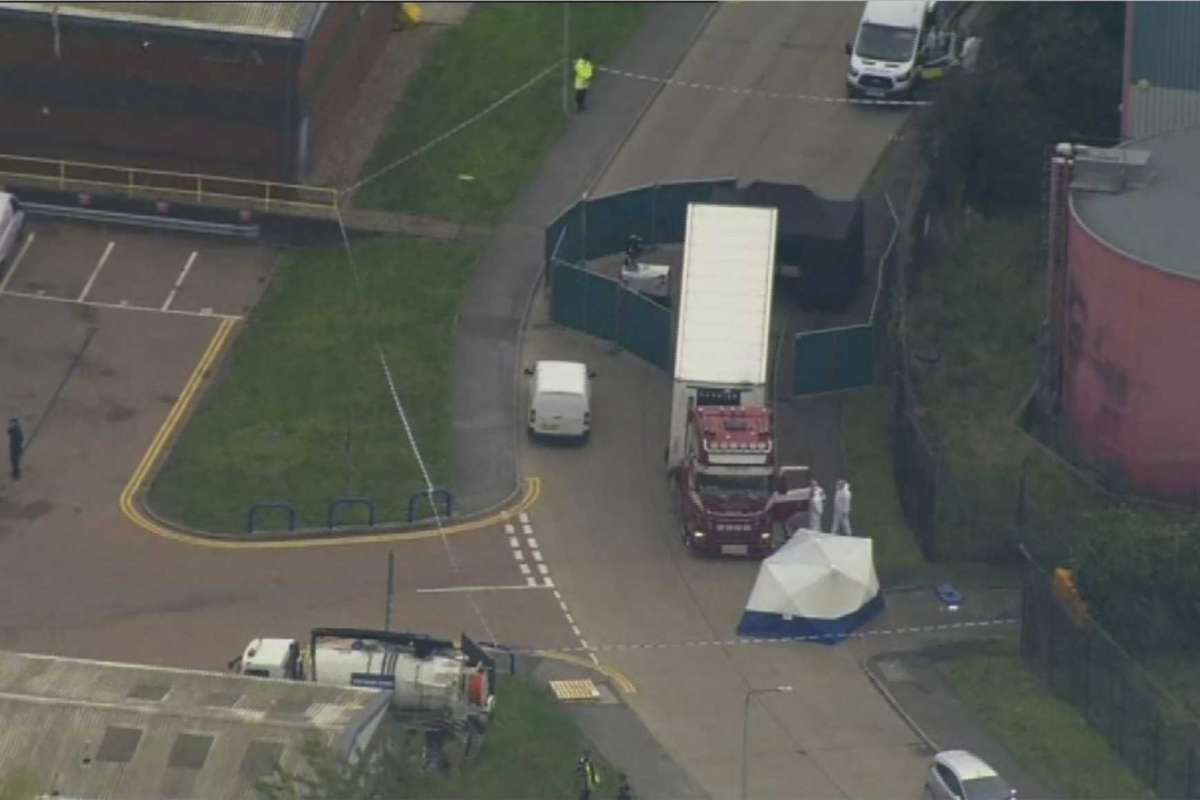On Sept. 14, Saudi Arabia's two oil facilities were reportedly bombed by dozens of drones, and Yemenis Houthi forces admitted to doing so. Houthi leaders who volunteered to admit to the attack said on television that as long as Saudi Arabia stopped its aggression against Yemen, Houthi would also stop attacking Saudi Arabia.
(picture source:搜狗图片)

On October 8, according to Yemeni government officials and local health officials, government forces and Houthi forces exchanged fire in the southern Yemenan province of Dariah on the same day. Yemeni government forces launched an offensive against Houthi forces who controlled several military sites in northern Dalia governorate on the same day. After hours of exchange of fire, government forces recaptured control of these military sites, and Houthi militants fled to nearby Ib province. Five people were killed and fifteen injured in the exchange of fire. Husaiwu was equipped with 11 deaths and several casualties. For a long time, Houthi armed forces carried out large-scale attacks in Dali'a province, and it was reported that parts of the northern part of Dali'a province were attacked by Hu. The armed forces occupied the country.
This year, the civil war in Yemen entered its fifth year. The fighting ran through the north and south, and the number of soldiers killed and injured on the front line increased significantly every day. The situation in the country is volatile, cholera and diphtheria outbreaks spread, and civilian lives are seriously threatened. Since last year, many people have fled from war-torn areas to the port city of Aden and five surrounding provinces under government control. Despite occasional terrorist attacks, the government forces stationed there and the more well-equipped medical facilities still reassure many people. In recent months, however, the currency has depreciated, prices have skyrocketed and the problem of diesel, rice, oil and salt has become a daily concern for most people. Yemenis is located in the Arabic Peninsula In the south, the desert is vast, arable land is scarce, food supplies are tight and cereals and cereal products require substantial imports. The skyrocketing prices have forced some families to strictly control food, and many families eat only one meal a day. Rice noodles and other staple food prices have risen month after month, causing panic and anxiety among the public.
After the end of World War II, Western European countries generally declined, while the American economy and military strength expanded unprecedented, becoming the number one power in the world and pursuing the strategy of dominating the world. The Soviet Union's military strength has also grown rapidly, becoming the only country that can compete with the United States. The United States and the Soviet Union moved from cooperative relations during World War II to post-war confrontation. The polar pattern takes the United States and the Soviet Union as the center, forms the antagonism between NATO and China about two major military groups in Europe, and forms a comprehensive confrontation between capitalist camp and socialist camp in the world. It existed at the end of the disintegration of the Soviet Union from the early 1950 s to the early 1990 s.

When it comes to this, we have to talk about the civil war in Yemen. As we all know, the Middle East is one of the few armed conflict areas in the world.
Since the end of the Cold War, the polarization pattern has collapsed. Direct armed conflicts in the world continue to emerge, religious conflicts under the background of the two poles, ethnic contradictions continue to stimulate, resulting in civil wars in many countries, the outbreak of wars, lasted for many years.

So far, the civil war in Yemen, which has lasted for more than five years, has resulted in 200000 people directly killed in the conflict, nearly 100000 injured, 35 million displaced, 500000 unfed and 30 million short of food, as a result of the Saudi blockade and air strikes. At present, the ceasefire process of belligerent peace talks has been slow to improve. In the short term, the end of the civil war in Yemen is far from expected, but there is a possibility that it will intensify. The humanitarian disaster warned by the United Nations could sweep across the country for the foreseeable future, killing more than 30 million Yemenis as a result of famine. The political ambitions of several people have led to the blessing of the people of the whole country. Blessed, poor countless innocent civilians.
The Yemenis conflict, the Yemenis civil war, is a civil war in Yemen since it began in 2015. It was triggered by a coup d'é tat in Yemen. the two groups and their supporters each claimed to represent the Yemeni government. On the side of the war is the Yemeni government and its ally, the Southern Movement, led by President Abd-Rabbu Mansul Hadi, headquartered in Aden. On the other side is the Houthi militant group and its allies, former President Ali Abdullah Saleh. Al-Qaida and the Islamic State in the Arabian Peninsula were also involved in the civil war, with AQAP controlling large tracts of inland territory and extending to the coast. On December 4, 2017, former President Ali Abdullah Saleh was killed by Houthi. The armed groups were killed. As of December 6, 2017, military clashes between Yemenis Houthi forces and armed forces that support former President Saleh have continued, causing more than 600 casualties. On February 19, 2019, the United Nations Special Envoy called on both sides of the conflict to reach agreement on a second phase of the withdrawal plan. From January 1 to September 25, 2019, more than 700 civilians were killed and about 1600 injured.




